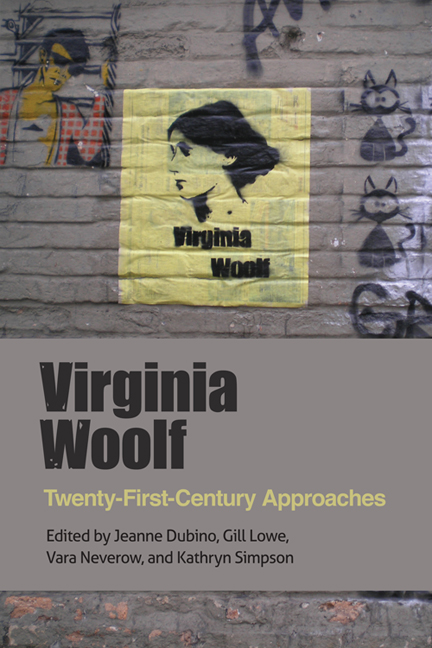Book contents
- Frontmatter
- Contents
- Acknowledgements
- Contributors
- Abbreviations
- Introduction
- PART ONE Self and Identity
- PART TWO Language and Translation
- PART THREE Culture and Commodification
- PART FOUR Human, Animal, and Nonhuman
- 7 The Bispecies Environment, Coevolution, and Flush
- 8 Posthumanist Interludes: Ecology and Ethology in The Waves
- PART FIVE Genders, Sexualities, and Multiplicities
- Index
7 - The Bispecies Environment, Coevolution, and Flush
from PART FOUR - Human, Animal, and Nonhuman
Published online by Cambridge University Press: 05 August 2016
- Frontmatter
- Contents
- Acknowledgements
- Contributors
- Abbreviations
- Introduction
- PART ONE Self and Identity
- PART TWO Language and Translation
- PART THREE Culture and Commodification
- PART FOUR Human, Animal, and Nonhuman
- 7 The Bispecies Environment, Coevolution, and Flush
- 8 Posthumanist Interludes: Ecology and Ethology in The Waves
- PART FIVE Genders, Sexualities, and Multiplicities
- Index
Summary
So that to know her, or any one, one must seek out the people who completed them; even the places. Odd affinities she had with people she had never spoken to, some woman in the street, some man behind a counter – even trees, or barns.
somehow in the streets of London, … here, there, she survived, Peter survived, lived in each other, she being part … of the trees at home; of the house …; part of people she had never met; being laid out like a mist between the people she knew best, who lifted her on their branches as she had seen the trees lift the mist, but it spread ever so far, her life, herself.
Virginia Woolf, Mrs DallowayThe first headnote emphasises identity; our identity is dependent on our relations with others, including those we have not met, and even objects, whether they are edifices like barns or alive like trees. The second headnote links this interdependent identity to survival. It is through our tree-like linkage – our branching out – to other people that we survive. Trees are, or can be, a lattice, a network. Woolf here suggests that our survival is dependent on this kind of network. It is not just through a one-on-one connection that we continue on after death, but rather through a mesh of multiple connections. More than half a century later, in their song, ‘Touch of Grey’, the Grateful Dead acknowledge this multiple dimension of survival too. This song, about growing old – much like Mrs Dalloway – is wistful in tone. The voice is that of a middle-aged man behind in his rent – that is, someone who has not made the most of his life, like, perhaps, Peter Walsh. Yet through the song the music remains upbeat, and the first-person pronoun of the refrain, ‘I will get by’, changes to ‘we’ in the last line of the song. We will survive, ‘get by’, through our connections with each other.
We survive, as scientists now prove, through ‘coevolution’, or through interacting with other people, species, and groups, and through changing in response to these interactions.
- Type
- Chapter
- Information
- Virginia WoolfTwenty-First-Century Approaches, pp. 131 - 147Publisher: Edinburgh University PressPrint publication year: 2014



